
Spirit of the Boogie is the sixth studio album by Kool & the Gang, released in 1975. It can be seen as a follow-up to Wild and Peaceful (1973); the instrumental "Jungle Jazz" uses the same basic rhythm track heard in "Jungle Boogie", but lets the players improvise on their instruments. References to earlier works can be noticed. "Spirit of the Boogie" features Donald Boyce, who was rapping on "Jungle Boogie". Some African influence can be felt, and the band even play in a West-Indian style on "Caribbean Festival", another instrumental track, with once more much room for improvisation.
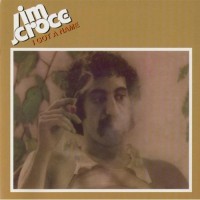
I Got a Name is the fifth and final studio album and first posthumous release by American singer-songwriter, Jim Croce, released on December 1, 1973. It features the ballad "I'll Have to Say I Love You in a Song", which reached number 9 in the US singles chart, and the ballad "Salon and Saloon", the last song Croce recorded in his lifetime. The song, which is noted for its sparse piano-only vocal backing, was written by his guitarist and friend Maury Muehleisen and was included on the album as a gift to the writer.

Barnstorm is the debut studio album by the American rock band Barnstorm, which was formed by guitarist Joe Walsh after he left the James Gang. The album was released in October 1972 on the labels ABC and Dunhill. It was the first album to be recorded at Caribou Ranch in Colorado.
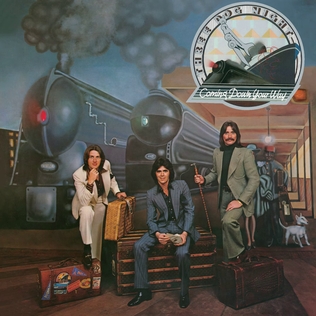
Coming Down Your Way is the thirteenth album by American rock band Three Dog Night, released in 1975. The album's original working title was "Dog Style", which was changed for unknown reasons.

Diamonds & Rust is the sixteenth studio album by American singer-songwriter Joan Baez, released in 1975. The album covered songs written or played by Bob Dylan, Stevie Wonder, The Allman Brothers, Jackson Browne, and John Prine. Diamonds & Rust, however, also contains a number of her own compositions, including the title track, a distinctive song written about Bob Dylan, which has been covered by various other artists.
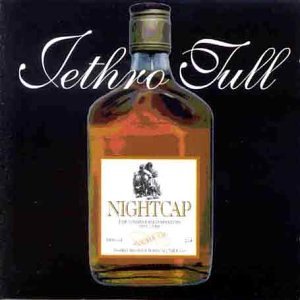
Nightcap: The Unreleased Masters 1973–1991 is a double compilation album by British rock band Jethro Tull, released on 22 November 1993. It contains much of the band's previously unreleased material.
John Clifford Farrar is an Australian music producer, songwriter, arranger, singer, and guitarist. As a musician, Farrar is a former member of several rock and roll groups including The Mustangs (1963–64), The Strangers (1964–70), Marvin, Welch & Farrar (1970–73), and The Shadows (1973–76). In 1980, he released a solo eponymous album. As a songwriter and producer, he worked with Olivia Newton-John from 1971 to 1989. He wrote her U.S. number-one hit singles: "Have You Never Been Mellow" (1975), "You're the One That I Want", "Hopelessly Devoted to You" (1978), and "Magic" (1980). He also produced the majority of her recorded material during that time, including her number-one albums, If You Love Me, Let Me Know (1974), Have You Never Been Mellow (1975), and Olivia's Greatest Hits Vol. 2 (1982). He was a co-producer of the soundtrack for the film Grease (1978).
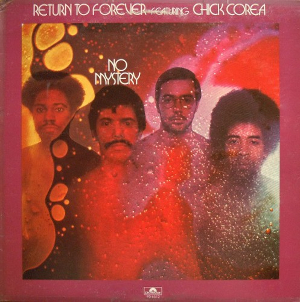
No Mystery (1975) is a studio album by jazz-rock fusion band Return to Forever, and the second featuring the quartet of Chick Corea, guitarist Al Di Meola, bassist Stanley Clarke and drummer Lenny White.

To Be Continued... is a four-disc box set by English musician Elton John, originally released in 1990. The box set was compiled by John and Bernie Taupin that same year. It details John's music from his days with Bluesology to the then-present day.

Change of Heart is a 1978 album by Eric Carmen. It was his third solo LP, and reached No. 137 on the Billboard album chart.

Numbers is the ninth studio album, and the first concept album by singer/songwriter Cat Stevens released in November 1975.

St. Vincent's Court is the fourth studio album by Kim Carnes, released in 1979.

For Girls Who Grow Plump in the Night is the fifth studio album released by the Canterbury scene band Caravan. Richard Sinclair and Steve Miller left the band prior to the recording of this album. They were replaced by John G. Perry and the returning Dave Sinclair. Viola player Geoff Richardson was added to the band.

Why Dontcha is the first studio album by power trio West, Bruce and Laing.

Making Music is the fourth studio album by American soul singer-songwriter and producer Bill Withers, released in 1975. It was also released in the UK as Making Friends.

Keeping Our Love Warm is the sixth studio album by the American duo Captain & Tennille. Issued in 1980, it was their final full-length release recorded for Casablanca Records.
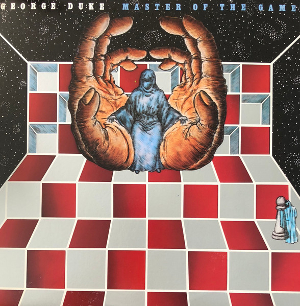
Master of the Game is the thirteenth studio album by American keyboardist and record producer George Duke. It was released in 1979 through Epic Records. Recording sessions for this full-length album took place at Westlake Recording Studios in Los Angeles. The album features contributions from vocalists Lynn Davis, Josie James and Napoleon Murphy Brock, guitarists David Myles, Ray Obiedo and Roland Bautista, bassists Byron Miller and Freddie Washington, drummer Ricky Lawson, percussionist Sheila Escovedo, trombonist Bill Reichenbach, trumpeters Jerry Hey and Gary Grant, and saxophonist Gary Herbig.

Rocket is an album by Edie Brickell & New Bohemians. The album was released on October 12, 2018, and is their first album since 2006's Stranger Things. The band wrote the songs on the album during the rehearsals of their 2017 La Rondalla Benefit Concert. After that they decided to record them, and the band recorded seven songs in eight days. The lead singer of the band, Edie Brickell, says that the album doesn't have too much structure, and often bounces between genres. Brickell also hopes that this album is a new beginning for the band and will bring them back on the radar.

Vince Guaraldi and the Lost Cues from the Charlie Brown Television Specials is a compilation soundtrack album by Vince Guaraldi released by D & D Records in 2007. The album consists of select music cues featured on several Peanuts television specials produced between 1972 and 1975.

Common Ground is the thirteenth studio album by the English progressive rock band Big Big Train, released on 30 July 2021. With the departure of Dave Gregory, Rachel Hall, and Danny Manners in 2020, Common Ground is the first album release with the core four-piece lineup of Greg Spawton, David Longdon, Nick D'Virgilio, and Rikard Sjöblom. Joining the core line-up on the album are session musicians Carly Bryant, Dave Foster, and Aidan O'Rourke. Upon release it entered the UK music charts at number 31.


















